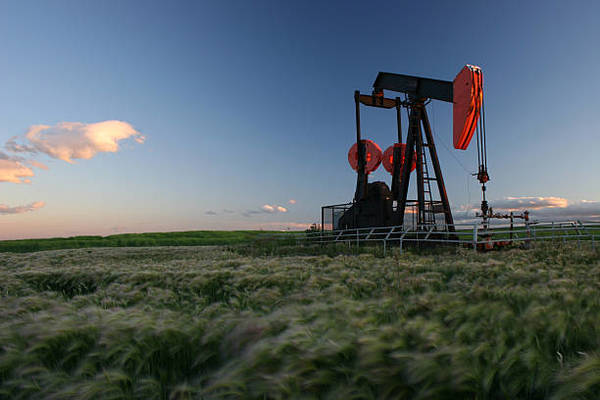Global oil demand will peak in 2025 – BP
British oil giant BP predicts that global oil demand will grow by 2 million b/d to peak at 102 million b/d in 2025.
 PHOTO: An oil pumpjack on the prairie in Alberta, Canada. Getty Images
PHOTO: An oil pumpjack on the prairie in Alberta, Canada. Getty Images
Oil demand will peak within the next year due to the rapid growth of wind and solar capacity, BP stated in its Energy Outlook 2024 report.
BP has forecasted two major scenarios—the current trajectory and the net zero trajectory—under which the demand for oil is anticipated to peak in the middle of this decade.
The first forecast scenario includes the current climate policies, while the second scenario assumes that the world has followed the net zero pathway introduced at the Paris climate agreement.
The rate of decline in oil demand after 2025 will largely depend on oil usage in road transport. However, oil will continue to “play a significant role in the global energy system for the next 10–15 years,” BP said in its report.
In the current trajectory scenario, BP projects a gradual reduction in oil consumption to about 75 million b/d by 2050. The mid-2030s will see a significant increase in primary energy demand in developing economies before it levels out.
“In China, oil demand edges slightly higher over the next few years before declining post-2030, driven in large part by the increasing electrification of road transport,” BP said.
In contrast, the net zero scenario forecasts a much steeper drop in demand to about 25–30 million b/d by 2050, around 70% lower than 2022 levels. In this scenario, BP sees energy demand enter a terminal decline phase after peaking in 2025.
The ‘energy addition’ phase
The world is currently in an "energy addition phase," according to BP's chief economist Spencer Dale, wherein there is a growing need for both fossil fuels and low-carbon fuels.
“The longer it takes for the world to move to a rapid and sustained energy transition, the greater the risk of a costly and disorderly adjustment pathway in the future,” Dale added.
To limit rising emissions and keep up with the growing global energy demand, the development of low-carbon energy sources is impeccable, according to Dale. Most renewable energy projects over the next decade are expected to be in China and other developed economies, accounting for around 30-45% of the increase in new capacity across both scenarios.
The significant growth in wind and solar energy projects will support the decline in energy costs, which in turn, will enable new renewable projects, the oil company said.
By Aparupa Mazumder
Please get in touch with comments or additional info to news@engine.online





